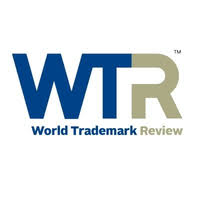CJEU interprets Regulation 1151/2012 in gherkin GI case
Par Richard Milchior, le 26 mai 2021
Article publié dans World Trademark Review

– This case involved a request for a non-minor modification of the specification of the GI ‘Spreewälder Gurken’ before the DPMA
– At issue was who has a legitimate interest to oppose such request or contest the decision granting such modification
– To answer this question, the CJEU interpreted Articles 49(3)(1) and 49(4)(2) of Regulation 1151/2012, read in conjunction with Article 53(2)(1)
On 15 April 2021 the Court of Justice of the European Union (CJEU) issued its decision in Hengstenberg GmbH & Co KG v Spreewaldverein eV (Case C-53/20), which concerned the interpretation of Regulation 1151/2012 on quality schemes for agricultural products and foodstuffs.
Background
The dispute involved Hengstenberg GmbH & Co KG, a German company specialising in sauerkraut, cabbage and gherkins, among others, and Spreewaldverein eV, an association of gherkin manufacturers. The gherkins are protected by the geographical indication (GI) ‘Spreewälder Gurken’, which has been registered with the Deutsches Patent- und Markenamt (German Patent Oce or DPMA) since 1999.
In 2012 Spreewaldverein led with the DPMA a request for the modification of the GI specifications concerning the manufacturing process of the gherkins. This was published in 2014 and opposed by Hengstenberg. The DPMA decided in September 2015 that the modication was conform to Regulation 1151/2012.
Hengstenberg disputed this before the Bundespatentgericht (Federal Patent Court), which decided that the only parties with a legitimate interest to attack this type of decision were the producers located in the production zone of the GI – which was not the case of Hengstenberg.
The case went to the Bundesgerichtshof (the German Supreme Court), which decided that an appeal was available to any party who had opposed a request for modication or had a “legitimate interest” pursuant to the test set forth in Article 49(4)(2) of Regulation 1151/2012.
As a consequence, the following question arose: within a procedure for a non-minor modication of a specication, does any party who is economically affected – either in reality or potentially – have a “legitimate interest” to oppose or contest the decision granting the modification? In addition, is the localisation of the opposing party relevant?
The Bundesgerichsthof decided to refer three questions to the CJEU for a preliminary ruling.
CJEU decision
By the first question, the referring court asked for a definition of ‘legitimate interest’ and sought to ascertain who can oppose, on this basis, a request for a non-minor modification of the specifications of a GI.
The CJEU based its reasoning on five different grounds, and concluded that Articles 49(3)(1) and 49(4)(2) of Regulation 1151/2012, read in conjunction with Article 53(2)(1) of the same regulation, must be understood as meaning that, within the procedure applicable to a request for a non-minor modification of the specifications of a product protected by a GI, any party affected economically, either in reality or potentially (without however exceeding plausibility), by the request may have a “legitimate interest” to oppose the modification. This will be suficient to oppose a request for modication or appeal a decision granting the modification, as long as the risk posed to this party’s interest is plausible or not hypothetical – which must be assessed by the national court.
Due to the answer given to the first question, the court did not answer the second and third questions.
This article first appeared on WTR Daily, part of World Trademark Review, in April 2021. For further information, please go to www.worldtrademarkreview.com.

